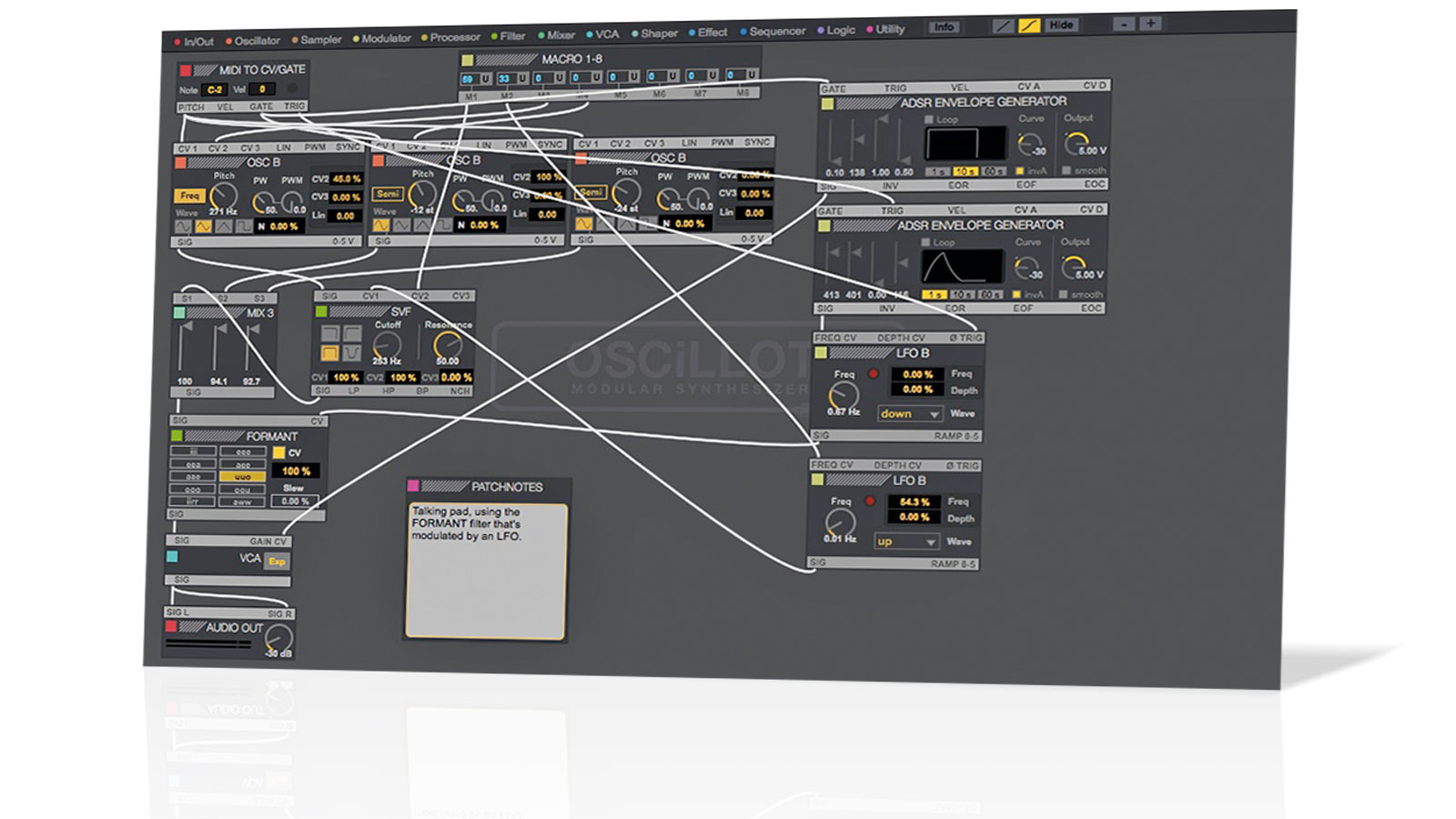MusicRadar Verdict
A synth with huge DIY potential with expansive options down the line.
Pros
- +
Can be anything you want it to be... if you've got the knowledge to work it. Lots of effects. Filters sound great.
Cons
- -
Slow module load times. Be nice to be able to resize modules.
MusicRadar's got your back
An extremely ambitious 6-voice polyphonic modular synth for Max For Live, Oscillot gives you over 100 modules - including oscillators and sample players, filters, LFOs, envelopes, effects, sequencers, and even VST instrument and effect plugin hosts - with which to build your own synths, drum machines, sample players, effects and other devices.
Since it's a fully realised Max For Live patch that works entirely through its own interface, you don't need to be even remotely versed in the workings of its intimidating host environment to use Oscillot (although if you are, you'll be pleased to hear that you can even build your own modules for it).
"The oscillators and filters sound good - and the effects are many and varied"
Simply load your modules of choice (activate the Info button for helpful descriptions of them) and connect them up in the main window by dragging the (concealable) virtual patch cords from inputs to outputs, freely routing their audio, MIDI and CV signals from module to module.
You can even apply CV control to VST plugin parameters and output CV to control external hardware synths (with a suitably equipped interface).
Obviously, to make anything of any sonic value, though, you do need to know what you're doing in terms of electronic instrument construction - randomly joining oscillators to filters isn't going to get you very far.
Sound-wise, Oscillot can be whatever you want it to be, of course, and although the preset patches don't do a particularly great job of showing off its full potential, it's clear that in the right hands, amazing things could be made to happen.
The oscillators and filters sound good, the effects are many and varied, and the sequencers and other ancillary tools have huge creative potential.
Want all the hottest music and gear news, reviews, deals, features and more, direct to your inbox? Sign up here.
Slow module load times, the inability to resize individual modules (both Max limitations, rather than Max For Cats' fault, we assume) and the aforementioned uninspiring preset library are our only real complaints.
For the asking price, this is a surprisingly powerful sound design environment that makes modular synthesis about as easy as it reasonably gets.
Further modules are promised for the future, too, and given the scope of what's already in place, we're certainly looking forward to seeing and hearing what they might be.
Computer Music magazine is the world’s best selling publication dedicated solely to making great music with your Mac or PC computer. Each issue it brings its lucky readers the best in cutting-edge tutorials, need-to-know, expert software reviews and even all the tools you actually need to make great music today, courtesy of our legendary CM Plugin Suite.

